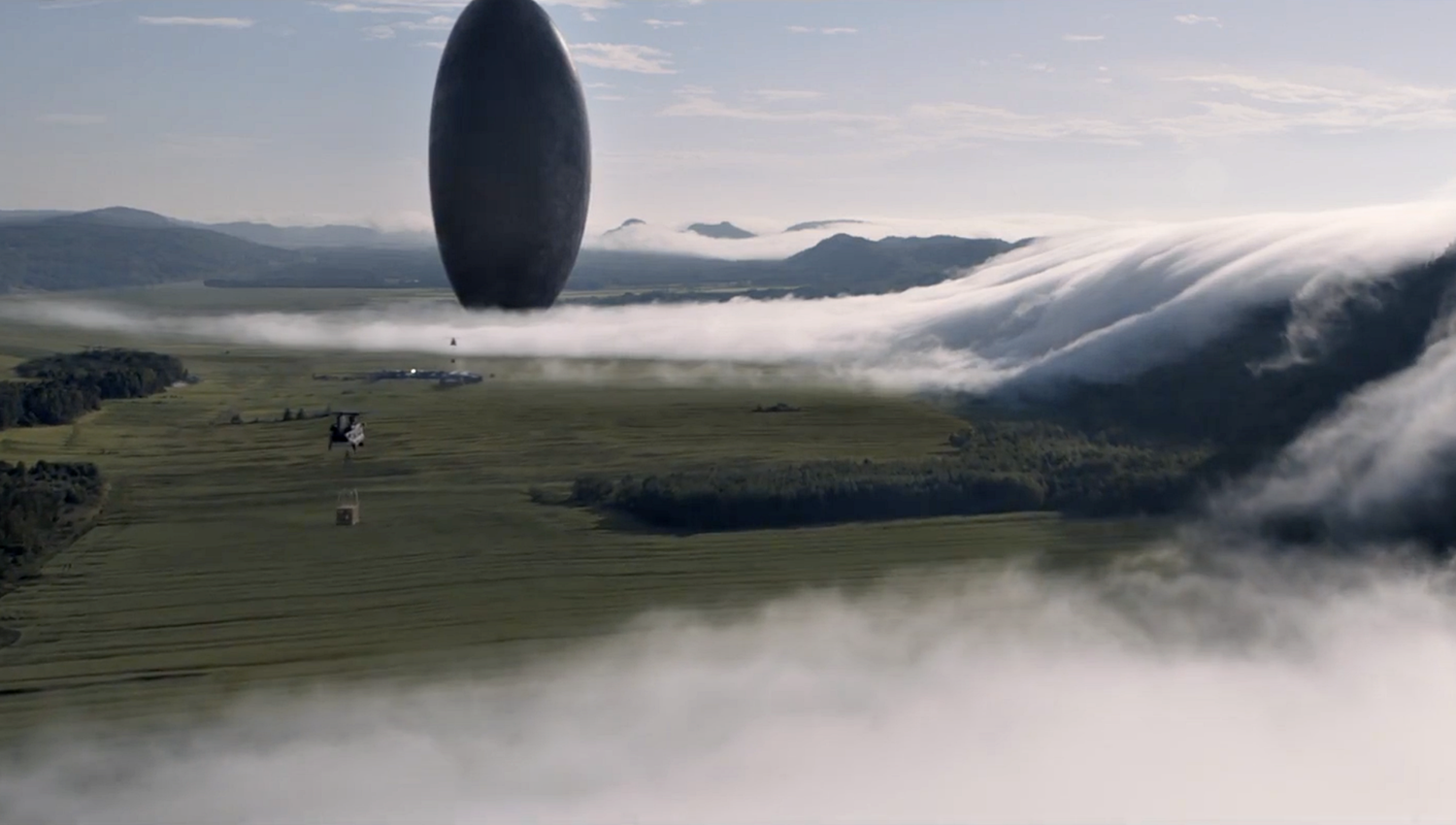
Arrival
Dustin Chase
There is no denying that Canadian Denis Villeneuve has emerged as one of the world’s most impressive rising directors. From “Prisoners”, to last years’ “Sicario”, Villeneuve films offer an experience that goes against the grain. His second consecutive female led story, “Arrival” will draw comparisons with “Sphere”, “Contact”, “Gattaca” and even “Interstellar”. “Arrival” stands on its own, certainly qualifying as a science fiction film, but the genre aspect of this story is almost a gimmick to get you in the door. What’s offered here is a far more impactful and emotional psychological mystery that stands tall among 2016’s best movies. Amy Adams (“Man of Steel”, “American Hustle”) and the rest of the cast might be looking up at the object in the sky, but the film is more interested in having the viewer look inward.
Plucked from home due to her security clearance and expertise with understanding language, linguist Dr. Louise Banks (Adams) is tapped to aid the government in the most important communication exercise of our time. Twelve objects have appeared across the world, with no obvious pattern or reason for their location. The United States has one in Montana, where Banks and Ian Donnelly (Renner), a theoretical physicist, must learn to talk with the inhabitants of this alien pod. What begins as a global sharing of information, quickly turns political and dangerous as certain countries refuse to cooperate when words are misinterpreted. While the visitors pose no threat, Banks must work against time to accurately communicate before war is started.
It’s a puzzle that keeps you engaged until the emotional impact, you never saw coming, connects all the pieces.
Films like this live or die on the author selling us an authentic governmental reaction and response scenario. If we don’t buy into the technical aspect of these stories, then nothing else will work. “Arrival” is only similar to “Contact” (1997) in how well it sells the procedural tactics of government, news, and global response. It flirts with the themes of “Sphere” as the cautionary team must use experts from different scientific arenas to solve the puzzle. Dr. Louise Banks is a lot like Jessica Chastain’s character from “Interstellar” in that a lot is riding on her expertise. However, Banks attitude closer matches Sandra Bullock in “Gravity”. All these women are fascinating characters who strengthen their stories. Adam’s performance isn’t some-blow-you-out-of-the-water delivery, it’s quiet, focused and subdued. I’m not sure the performance itself is enough to land the five-time nominee in the competitive best actress race. Her “overdue”, universally beloved industry status, in combination with two very different performances this year might though.
Whether it’s genius or frustrating for viewers, “Arrival” holds you in complete suspense until the final act. It’s a puzzle that keeps you engaged until the emotional impact, you never saw coming, connects all the pieces. Like Christopher Nolan’s films, you simply must pay attention, let it wash over you, and trust that the explanation (and there is one) will leave you floored. “Arrival” is a smaller budget than most of the other mature sci-fi films I mentioned above, but it still looks and feels impressive. Whether you like or embrace this film will depend on how willing the viewer is on bringing their own personal feelings into the concept. It packs an emotional wallop no one will see coming. Composer Jóhann Jóhannsson (Sicario, Prisoners) once again adds further dimension to Villeneuve’s work. It’s one of the year’s most effective original scores.
Final Thought
A fascinating sci-fi riddle that’s more psychologically challenging and emotional than anything else.
